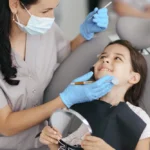Maintaining a healthy body starts with giving it the right fuel, and vitamins play a major role in keeping everything running smoothly. Although many people try to eat well, busy lifestyles, stress, and processed foods often make it difficult to get enough essential nutrients daily. When the body doesn’t receive enough vitamins, it begins to show clear warning signs. Recognizing these early signals helps you correct deficiencies before they grow into bigger health problems. This article explains the top seven signs your body may need more vitamins and highlights why paying attention to your nutritional balance is so important. You may also come across supplements and wellness brands like Eyetex DSR or blogs such as av19org, which often discuss the importance of proper nutrition, but the foundation always starts with understanding your health needs.
1. Constant Fatigue and Low Energy Levels
One of the most common signs of vitamin deficiency is persistent fatigue. If you feel tired even after a full night’s sleep, your body may not be receiving enough essential vitamins. Low levels of vitamins like B12, vitamin D, and folate can significantly decrease your energy production. B vitamins help convert food into usable energy, and when these are missing, your body struggles to maintain stamina throughout the day.
This type of fatigue is not the usual tiredness you feel after a busy schedule. Instead, it’s a continuous lack of energy that affects your productivity, focus, and motivation. Many people assume that being tired is normal, but chronic fatigue should never be ignored. Increasing vitamin-rich foods—such as leafy greens, eggs, dairy, and fish—can be a simple way to restore your energy. If symptoms persist, you may need a blood test to identify specific deficiencies.
2. Hair Loss and Weak Nails
Your hair and nails often reveal deeper health issues before you notice them elsewhere. If you are experiencing increased hair fall, brittle nails, or slow nail growth, you may be lacking essential vitamins such as biotin, vitamin D, vitamin B7, and iron. These nutrients support the strength and structure of hair follicles and nail beds.
Dry, lifeless hair or sudden thinning can indicate your body is not receiving enough nutrients to maintain healthy cell production. Your nails may also develop ridges, cracks, or white spots, signaling deficiencies. Improving your intake of nuts, seeds, fish, and leafy vegetables can support hair and nail health naturally. Some individuals also turn to supplements or products like Eyetex DSR, but a balanced diet is the most reliable approach.
3. Frequent Illness and Weak Immunity
If you are catching colds more often than usual or taking longer to recover from common infections, your body may be lacking immune-supporting vitamins. Vitamins C, D, and zinc are crucial for strengthening the immune system. Vitamin D, in particular, acts as a powerful immune regulator, and deficiency in this vitamin is extremely common in people who get limited sun exposure.
A weak immune system can also be linked to lifestyle habits such as stress, poor sleep, and limited physical activity. However, nutrient deficiency remains one of the leading causes. Adding fruits like oranges, strawberries, kiwi, and vegetables such as broccoli and bell peppers can support your immunity. Getting adequate sunlight and spending time outdoors also helps maintain healthy vitamin D levels.
4. Dry Skin, Cracking Lips, or Slow Wound Healing
Your skin often reflects your internal nutrient levels. Excessively dry skin, flaky patches, or wounds that heal slowly are common signs of vitamin deficiency. Vitamins E, A, C, and K are essential for skin repair, hydration, and collagen production. When these vitamins are low, your skin may lose elasticity, moisture, and its ability to regenerate quickly.
Cracking at the corners of your lips, known as angular cheilitis, is often associated with low levels of B vitamins or iron. Similarly, bruising easily can suggest low vitamin C levels. Improving your diet by adding berries, nuts, citrus fruits, green vegetables, and healthy oils can significantly improve your skin’s condition. Beauty-focused websites, sometimes like av19org, also highlight how vitamin-rich foods contribute to glowing skin.
5. Mood Swings, Irritability, or Mild Depression
Your brain depends on essential vitamins to regulate mood and maintain cognitive function. Deficiency in vitamins B6, B12, and D has been linked to mood swings, irritability, anxiety, and even symptoms of mild depression. Vitamin D, sometimes called the “sunshine vitamin,” directly affects serotonin levels. When your body lacks it, you may experience sudden shifts in mood or feel mentally drained.
People who stay indoors, work long office hours, or live in areas with limited sunlight are more likely to have low vitamin D levels. Likewise, B vitamins help create neurotransmitters responsible for emotional balance. If you notice unusual emotional changes, it’s important to assess whether your diet includes whole grains, fish, eggs, and leafy greens.
6. Vision Problems or Eye Dryness
Your eyes can also indicate when your body needs more vitamins. Blurred vision, difficulty seeing at night, or chronic dryness may be linked to low vitamin A levels. This vitamin supports the health of the retina and maintains proper moisture levels in the eyes.
Vitamin B2 and vitamin E deficiencies can also contribute to eye fatigue and sensitivity to light. People who stare at screens for long hours are more prone to these symptoms, especially when combined with poor diet. Carrots, sweet potatoes, spinach, fish, and nuts are excellent sources of eye-supporting vitamins. Protecting your vision should be a top priority, especially in a digital era where screen time is unavoidable.
7. Muscle Cramps, Joint Pain, or Bone Weakness
Frequent muscle cramps, bone discomfort, or joint stiffness can signal deficiencies in vitamins like D, calcium, and magnesium. Vitamin D helps your body absorb calcium, which is essential for strong bones and muscles. When these nutrients are low, your bones may weaken, and your muscles can tighten or cramp.
People who avoid dairy products, rarely go outdoors, or have poor diets are more likely to experience these symptoms. If cramps occur at night or after mild physical activity, it may indicate your muscles lack vital nutrients. Incorporating dairy, leafy greens, nuts, fish, and fortified foods can help restore healthy levels.
How to Restore Your Vitamin Levels
Improving your vitamin intake doesn’t always require complex changes. Start by analyzing your daily eating patterns. A colorful plate filled with fruits, vegetables, whole grains, nuts, and lean proteins naturally delivers essential nutrients. Hydration also supports nutrient absorption.
However, sometimes diet alone is not enough, especially for individuals with digestive issues, restricted diets, or high-stress lifestyles. A doctor may recommend supplements after running basic blood tests. This ensures you take only what your body genuinely needs.
If you follow nutrition blogs or supplement guides, you may notice names like Eyetex DSR or wellness discussions on av19org, but remember that the foundation of good health starts with consistent, balanced nutrition.
Final Thoughts
Your body has its own way of communicating when something is missing. Fatigue, weak immunity, skin problems, mood changes, and muscle cramps are all signals that your vitamin levels may need attention. Ignoring these signs can lead to long-term deficiencies and health complications. By understanding the warning signs and making small but meaningful dietary changes, you can maintain a stronger, healthier, and more energetic body.
Caring for your health is not about temporary fixes—it’s about building habits that nourish your body every day. If you suspect a deficiency, take action early. Your body will thank you with improved energy, clearer skin, a stronger immune system, and a happier lifestyle.










 /home/u448362301/domains/theexpotab.com/public_html/wp-content/themes/foxiz/templates/popup.php on line 167
/home/u448362301/domains/theexpotab.com/public_html/wp-content/themes/foxiz/templates/popup.php on line 167